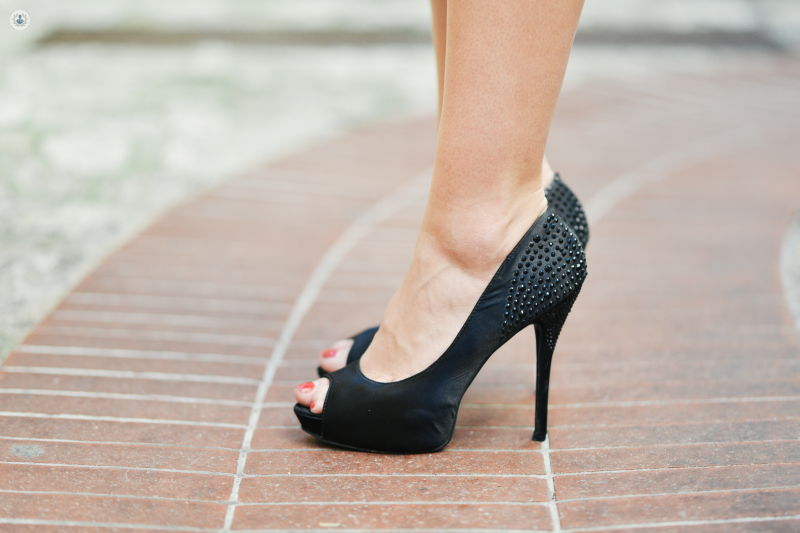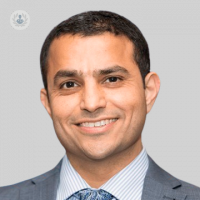How are bunions managed most effectively?
Written in association with:Here, renowned foot and ankle surgeon, Mr Kailash Devalia, delves into the medical condition hallux valgus, otherwise known as bunions.

What are bunions?
Bunions, medically known as hallux valgus, are a common foot deformity that can cause significant discomfort and pain. They occur when the big toe deviates towards the other toes, leading to a bony bump on the side of the foot.
How do bunions develop?
The development of bunions is often linked to genetic factors. If bunions run in your family, you may be more prone to developing them. Additionally, foot structure and biomechanics play a role.
People with flat feet or overly flexible ligaments are more likely to develop bunions. Wearing tight, narrow shoes that squeeze the toes together can exacerbate the condition, particularly high heels, which put extra pressure on the front of the foot.
What are the main symptoms?
Symptoms of bunions can vary from mild to severe. The most noticeable sign is the protruding bump at the base of the big toe. This area can become red, swollen, and tender.
Over time, the alignment of the toes can be affected, leading to overlapping or crowding. Pain is a common symptom, especially when walking or wearing shoes that put pressure on the bunion. Corns or calluses may develop where the toes rub against each other or the shoe.
How are bunions managed most effectively?
Managing bunions often starts with non-surgical treatments aimed at relieving symptoms. Choosing footwear with a wide toe box can reduce pressure on the bunion. Padding and taping can also provide relief and help realign the toe.
Orthotic devices, which are custom-made inserts for your shoes, can improve foot mechanics and alleviate discomfort. Over-the-counter pain relievers and anti-inflammatory medications can help manage pain and reduce swelling.
If conservative treatments do not provide sufficient relief and the bunion causes significant pain or impairs daily activities, surgery may be considered. Several surgical procedures are available, ranging from simple bunion removal to more complex realignment of bones, tendons, and ligaments. The choice of surgery depends on the severity of the bunion and the patient's specific needs.
How are bunions prevented?
Preventing bunions involves wearing properly fitting shoes with adequate space for the toes and avoiding high heels or shoes that put undue pressure on the front of the foot. Maintaining a healthy weight can also reduce stress on the feet. Regular foot exercises to strengthen the muscles and maintain flexibility can be beneficial as well.
If you'd like to book an appointment with Mr Kailash Devalia today, simply visit his Top Doctors profile.


